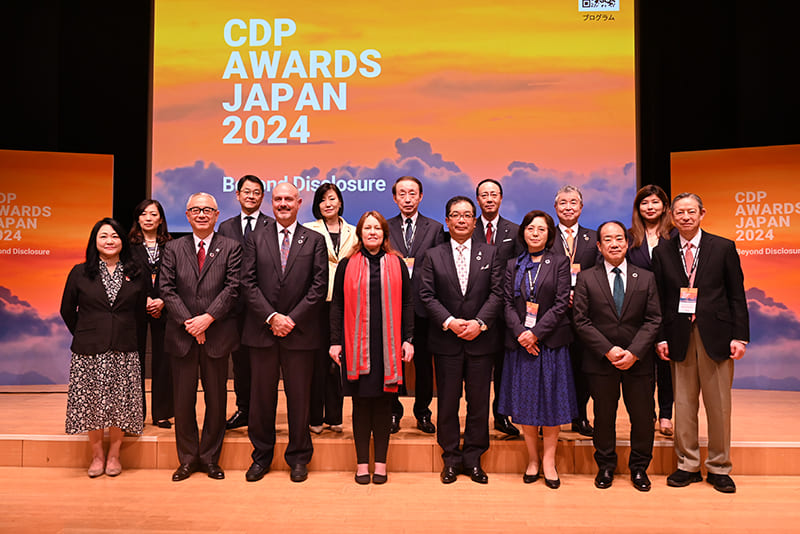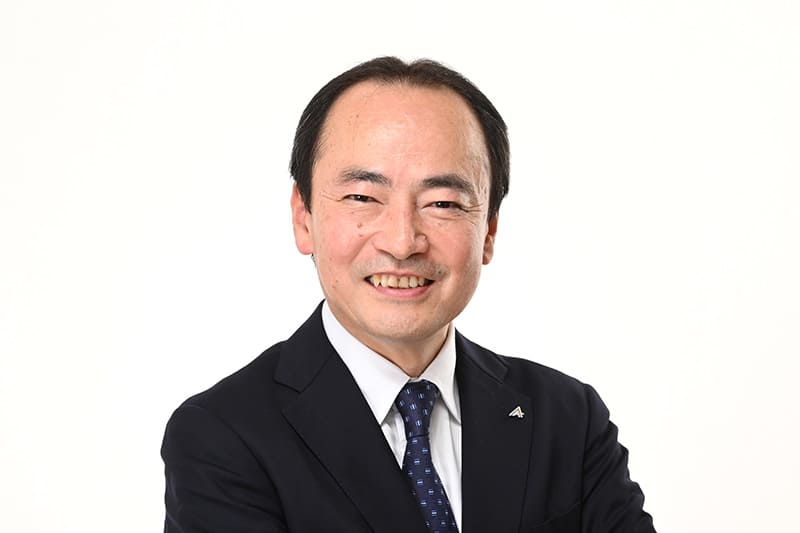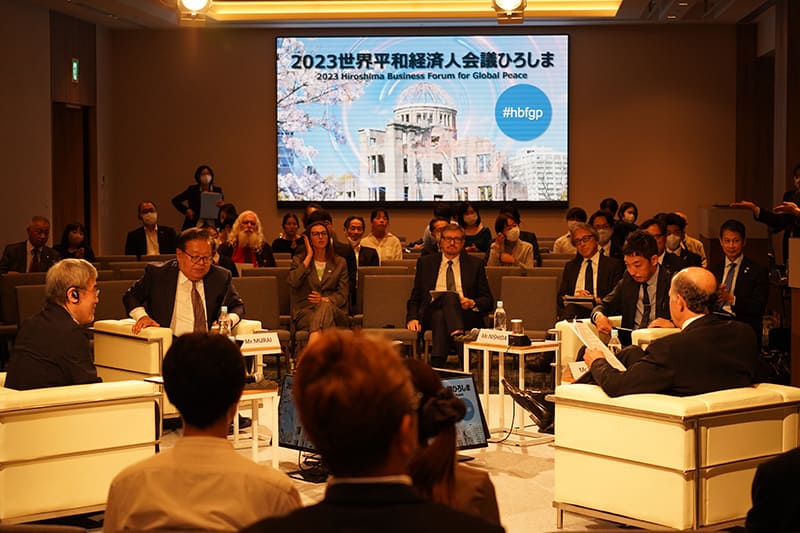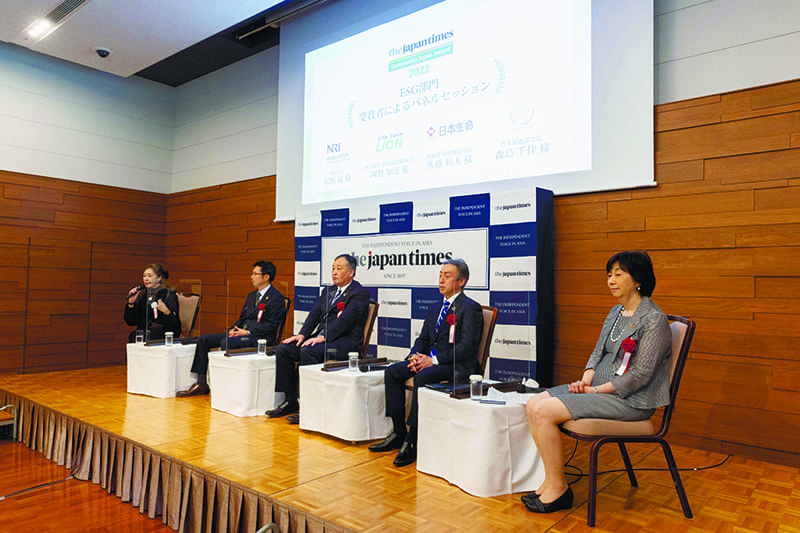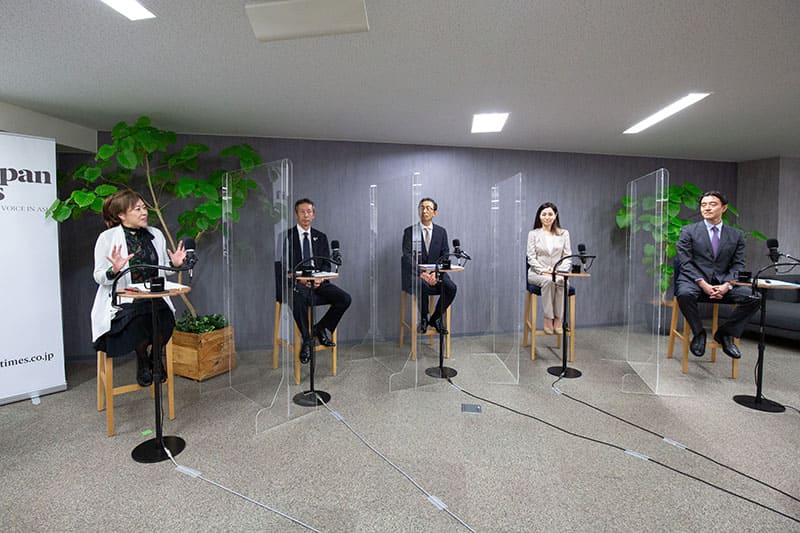August 15, 2022
OAT Agrio’s agrochemicals are from nature, for crops
Contributing writer
SPONSORED CONTENT
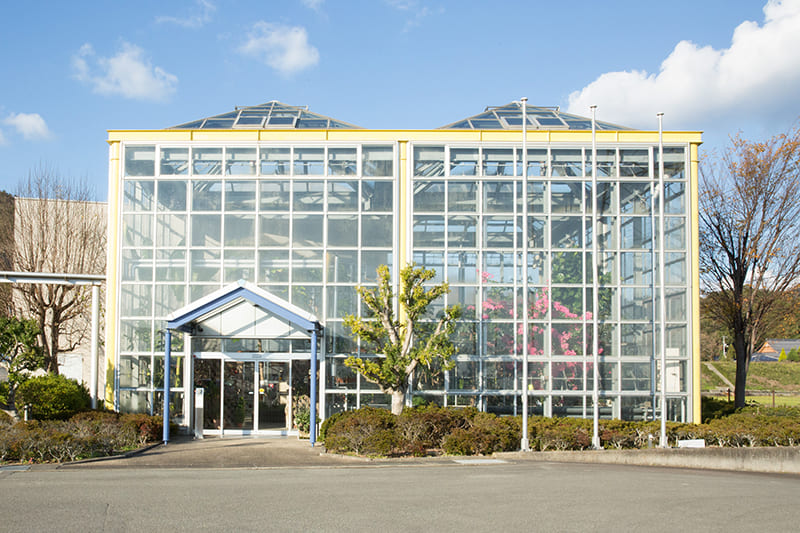
OAT Agrio Co. Ltd. operates its business with the corporate philosophy of “We contribute to the people of the world with our agrotechnology and sincerity.” Listed on the Prime Market of the Tokyo Stock Exchange, the company was established in 2010 through a management buyout from Otsuka Chemical Co., a member of the Otsuka Holding Co. group. “At that time, projections announced by the Food and Agriculture Organization (FAO) of the United Nations showed that an increase in food production of about 70% is necessary to feed the world population of over 9 billion people by 2050,” said Hisashi Oka, president and CEO of OAT Agrio, in a recent online interview with The Japan Times.
To achieve the growth of food production, the prevention of diseases and pests is indispensable. “According to FAO, who declared 2020 as the International Year of Plant Health, 80% of foods we eat are of plant origin, up to 40% of which is damaged by diseases and pests every year,” Oka said. “Repetitive use of the same agrochemicals allows pests and diseases to develop resistance properties. It is our mission to search for new chemical compounds consistently.”
However, the company is pursuing more than just the effectiveness of the new chemical compounds. They have been focusing on the research and development of materials based on environmentally and human-friendly materials derived from natural substances and food additives. “For example, Suffoil, which is made mainly of safflower oil, kills mites by suffocating them. The oil film also prevents their eggs from hatching,” Oka said.
Another important factor for plant growth is getting enough nutrients. However, Oka pointed out that excessive use of chemical fertilizers can damage the soil. That is why OAT Agrio promotes the method of fertilization through a drip irrigation system to supply just the right amount of fertilizer and water at the roots of plants, timed with each growth stage to avoid excessive doses. “A green pepper farm in Ibaraki Prefecture that adopted this system succeeded in reducing the amount of fertilizer by about 25%,” Oka said.
OAT has further developed technology that can automatically diagnose each growing stage by using artificial intelligence with various sensor cameras.
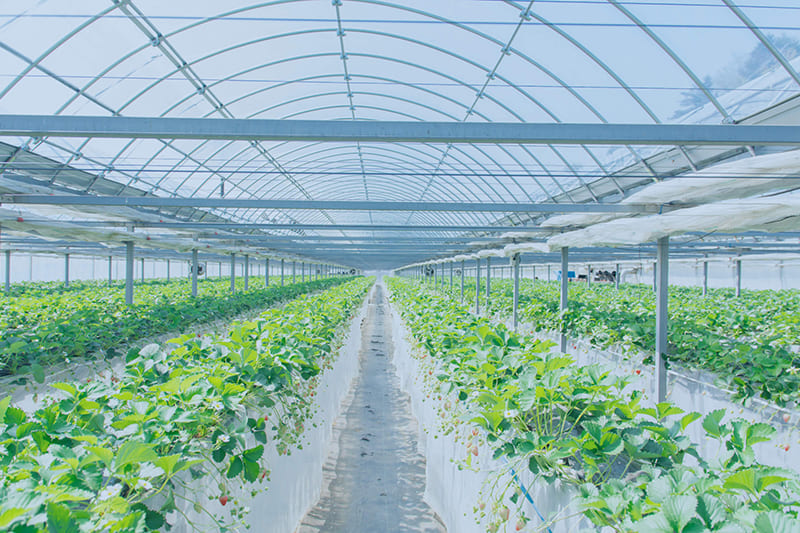

Also, a solution service for the entire cultivation cycle has been developed: Agrio Ichigo Master, which provides a package of required materials (agrochemicals, fertilizers and biostimulants) and the cultivation technology at a fixed cost. The service specializes only in strawberries at the moment but will expand to other crops in the future. This surely will reduce the load on farmers and secure crop yields even for new farmers.
The issues of global warming and climate change cannot be resolved through agrochemicals or fertilizers. Drastic changes in the natural environment, such as temperature and precipitation, can be stressful to crops and lead to degradation in their quality and yields.
To solve this problem, OAT Agrio is dedicated to the development of biostimulant products that boost the immune systems of plants, increase resistance to abiotic stresses like cold and hot weather, and help against diseases and pests. OAT Agrio now supplies biostimulant products to over 50 countries, Oka said.
OAT Agrio is also trying to make the company itself good for the environment and society. Its main factory, located in the city of Naruto in Tokushima Prefecture, has already adopted renewable energy proactively, and some of its affiliates across the world have installed solar panels and LED lighting for office buildings and manufacturing facilities besides adopting renewable energy electricity.
In terms of emissions reductions, OAT Agrio has completed calculations and analysis of Scopes 1 and 2 for how much carbon dioxide is produced by the company itself and through its purchased and acquired energy. “Based on our findings, we will be accelerating our emissions reduction efforts. We are also working on where and how much CO2 is generated in the entire supply chain right now,” Oka said.
Another new challenge that the company is taking on is to expand beyond the business-to-business market and reach out to the general public through its e-commerce website and social media. It aims to communicate the importance of making agriculture sustainable not only to growers but also to consumers by offering tools and opportunities to experience the joy of cultivation, saying that growing one’s own food is fun in itself and brings happiness to all those who eat it. “Enjoying kitchen gardening at home — that is a way to contribute to the increase of food production too,” Oka said.

